It has been a week of high-profile clashes between one of India’s largest film industries – the Mumbai-based Bollywood – and the Central Board of Film Certification a.k.a the Censor Board. First, the Punjabi-Hindi film Udta Punjab raked in big bucks on its opening weekend, thanks in large part to the free publicity graciously engineered by the Board’s illogical, legally untenable objections to it. Then the Nawazuddin Siddiqui-starrer Haraamkhor, featuring a teacher-student romance, was flatly denied clearance because the examining committee found the theme per se unacceptable. Now social media is abuzz with news that the invective-filled Saat Uchakkey starring Manoj Bajpayee and Anupam Kher has been thrown out too. Hold your thoughts on these films for a moment. Let us turn our attention instead to a song that has also emerged from Bollywood in recent weeks: Teri ma-behen Ma-behen ma-behen ma-behen ma-behen ma-behen ma-behen Teri haddiya tootey Teri khopdi phootey Teri izzat har koi lootey. In case you do not understand Hindi, here, in effect, is what these lyrics mean in English: M*th*rf*ck*r s*st*rf*ck*r M*th*rf*ck*r s*st*rf*ck*r m*th*rf*ck*r s*st*rf*ck*r m*th*rf*ck*r s*st*rf*ck*r m*th*rf*ck*r s*st*rf*ck*r m*th*rf*ck*r s*st*rf*ck*r m*th*rf*ck*r s*st*rf*ck*r May your bones break May your skull crack May you be repeatedly raped. For those who do not know, these are the words of a rap song sung by Abhishek Bachchan’s character Bunty in another of this month’s Bollywood releases, Housefull 3 . The Censor Board, which went ballistic over the abuse, drug abuse and politics featured in Udta Punjab – including the same expletives “motherfucker” and “sisterfucker” – appears to have had no qualms about clearing Housefull 3’s rape rap. [caption id=“attachment_2808272” align=“alignnone” width=“825”]  Poster of Housefull 3. Image from Facebook.[/caption] The situation is steeped in irony and double standards. Director duo Farhad-Sajid’s Housefull 3 and Abhishek Chaubey’s Udta Punjab have reached theatres within a fortnight of each other. The Censors initially demanded changes in Udta Punjab that, according to various media reports, would have amounted to anything from 89 to 94 cuts. The film ultimately managed to come to theatres with just one cut and an A (restricted to adults) rating when the producers sought the intervention of the Bombay High Court in the matter. Housefull 3 with its abundance of cuss words and a rape curse set to music, however, was awarded a UA certificate, which means any child can watch this film and the Board is merely putting out a cautionary note for parents who care enough to monitor their children’s film-viewing habits. The UA rating stands for “Unrestricted Public Exhibition – but with a word of caution that parental discretion is required for children below 12 years”. While the country’s film industries have been complaining for decades about the inconsistency in Censor rulings from film to film, the current CBFC chief Pahlaj Nihalani’s authoritarian ways, personal whims and strange public pronouncements make his tenure a perfect showcase for the extent of ambiguity in the Board’s responses to different films. [caption id=“attachment_2832454” align=“alignnone” width=“825”] 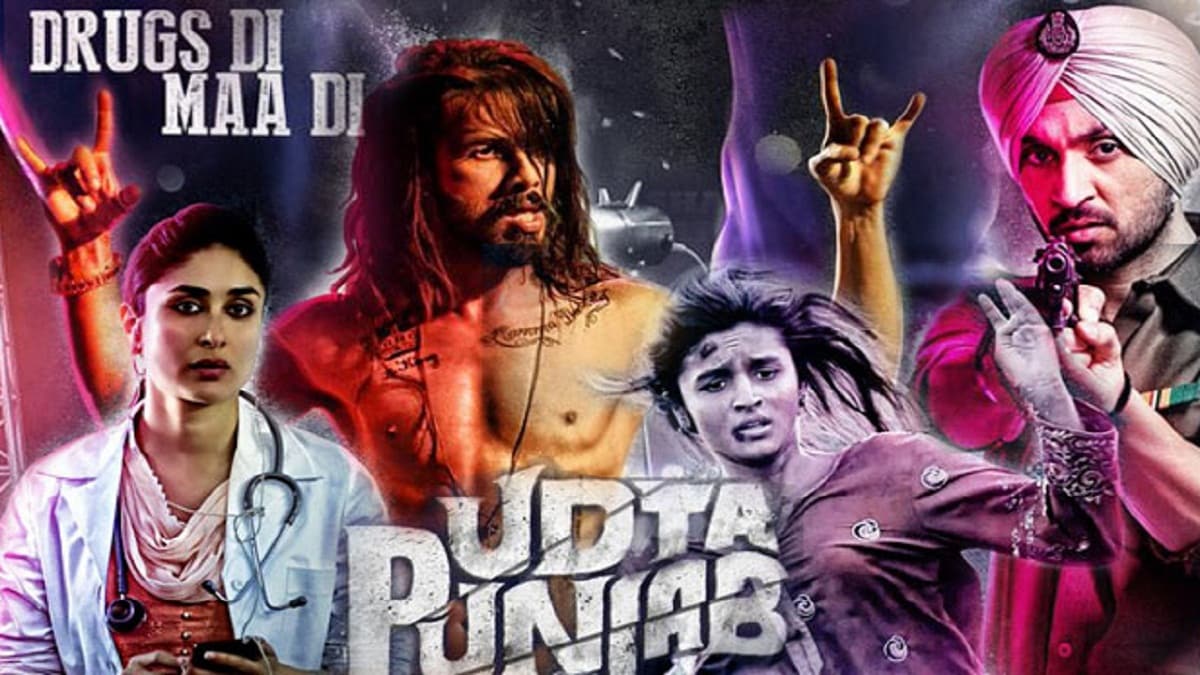 Udta Punjab. Image from Twitter.[/caption] The contrast between the treatment meted out to Udta Punjab and Housefull 3 is a fine example. The past few months have been littered with similar instances, although none made as much news as Udta Punjab, possibly because of the scale of the Censorship in this case and, more important, the strong stand taken by the film’s producers particularly Anurag Kashyap. Housefull 3’s encounter with the CBFC, which has not attracted media attention, is bizarre in its own way. It is a telling illustration of the contradictions often delivered within rulings on the same film in this country. This Akshay Kumar-Junior Bachchan-Riteish Deshmukh-starrer may have managed a UA rating despite its rape rap, but the strictures placed on it (eight in all) throw light on the Board’s conflicted misogyny and hypocritical, medieval ultra-conservatism. For those who have not seen the film, here is the context of the rape rap song. Bunty is an aspiring Indian rapper participating in a contest in London. The judge – who is a white man – derides our desi boy’s performance, but accepts his request for a second chance, at which point Bunty belts out the string of Hindi insults that make up the Teri ma-behen number. Get this: the rape slur in Bunty’s rap song was added AFTER the Censors objected to the original material which featured many variants of ma-behen and multiple derisive references to fathers, mothers and sisters. The lyrics were rewritten, every mention of dads was dropped and the rape curse added. The result: a go-ahead from the Board with a UA. [caption id=“attachment_2849282” align=“alignnone” width=“825”] 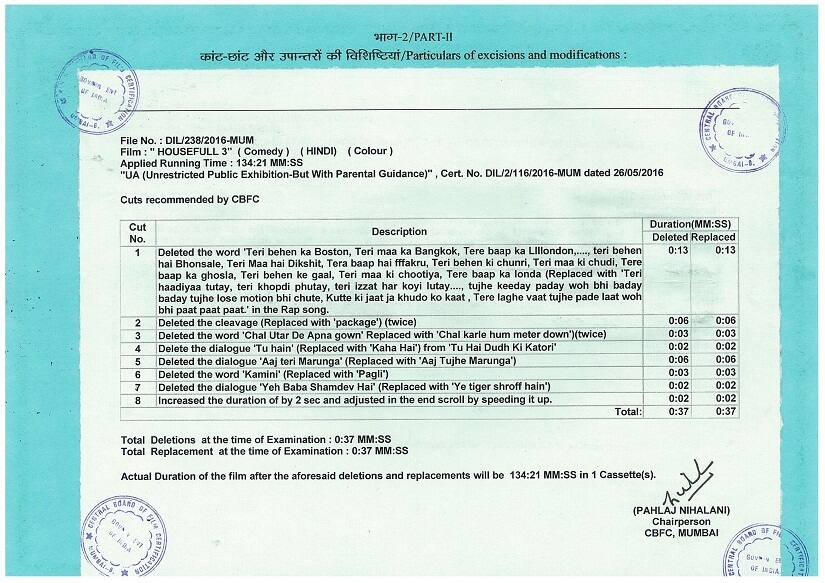 Housefull 3 censor certificate. Image courtesy: Eros[/caption] When contacted, Farhad-Sajid refused to comment on the kid-glove treatment given to their film or the apparent inherent confusion within the Board’s ruling. So what is one to read from this verdict? That dads are sacred, moms and female siblings are not? That insults referring to relatives are acceptable in limited quantities, but wishing rape on a man is unquestionably okay? Incidentally, the makers of Housefull 3 were also asked to remove the dialogue “Yeh Baba Shamdev hai” and replace it with “Yeh Tiger Shroff hai”. Clearly, Baba Ramdev and other supporters of the ruling BJP are holy cows in the CBFC’s view. Nihalani and the Board make no bones about their political affiliations, but the rest of their decisions could come across as random to observers. In truth, there is a pattern to the seeming randomness. Makers of films that are deemed arty, niche, serious or offbeat in public perception are far more likely to get scissored than films by directors who are considered commercially driven and massy. Likewise, reality and straight talk are frowned upon, while fantasy, comedy and innuendo are most likely to pass muster. And while films with big stars have occasionally run into trouble in the past (Udta Punjab’s cast, after all, was headlined by Shahid Kapoor, Kareena Kapoor Khan and Alia Bhatt), the fact is that all other things being equal, a film with established, major mainstream stars is far safer in the hands of the Censor Board than a film with unknowns, newcomers and actors who tend to lean towards niche films. Just seven days before Housefull 3, a small Hindi film called Phobia came to theatres. This excellent psychological thriller directed by Pavan Kirpalani featured a flawless performance by actress Radhika Apte. The A certificate to the film is perfectly understandable – Phobia is inexorably frightening. What is not understandable is that despite the A, the Board asked for the words “bitch” (twice) and “screwed up” to be muted. [caption id=“attachment_2849286” align=“alignnone” width=“825”] 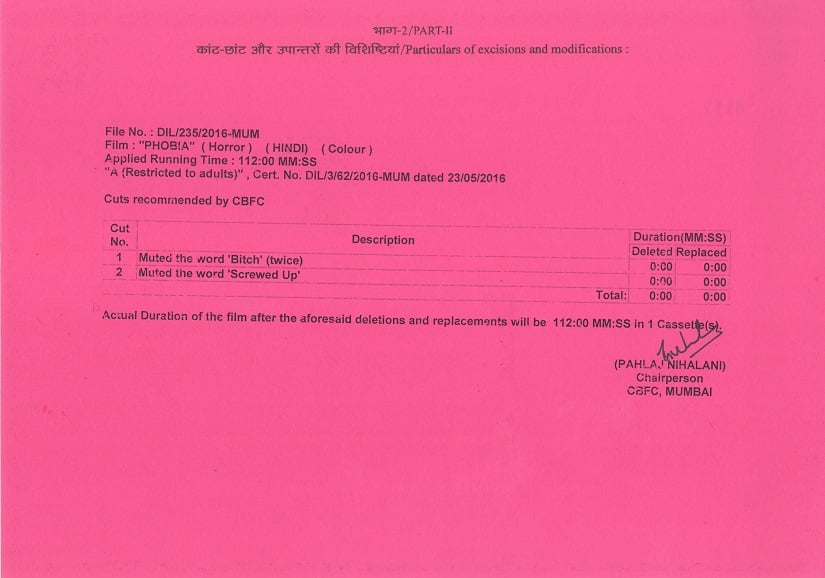 Phobia censor certificate. Image courtesy: Eros[/caption] So according to the Censor Board, it is all right to trivialise and demean women as U and UA-rated Hindi films routinely do, but when a word of abuse is used realistically within a specific context, the Indian adult psyche will be damaged? In the same week as Phobia, Anu Menon’s Hindi-English-Malayalam film Waiting starring Naseeruddin Shah and Kalki Koechlin was released. This gentle tale of life, death and the relationships that come in between has no violent or scary content, yet it was given an A rating because of the heroine’s penchant for profanity. Despite the A, despite the thematic significance of the young woman’s crude tongue which becomes a subject of discussion between her and the elderly male protagonist, the producers were forced to mute “chutiya”, “bastard” and “motherfucker” while other equally colourful expressions were untouched. Some might consider that better luck than many A films have had. Menon minces no words about her exasperation with the Censor Board. “Waiting is upfront, and as a society we don’t understand upfront discussions. When something is presented clearly, everybody gets uncomfortable, as they did with Udta Punjab. Waiting shows a mirror to young people about how we talk. Everyone prefers films in which everything is slipped under the carpet,” she says, adding, “You know Housefull is considered a family film in our set-up? The general understanding of family films among producers is these Whatsapp jokes that go around – most are sexist, most are really rude and everybody giggles over them. So actually, the response to Housefull is a representation of our society. So is the Censor Board.” [caption id=“attachment_2849292” align=“alignnone” width=“825”] 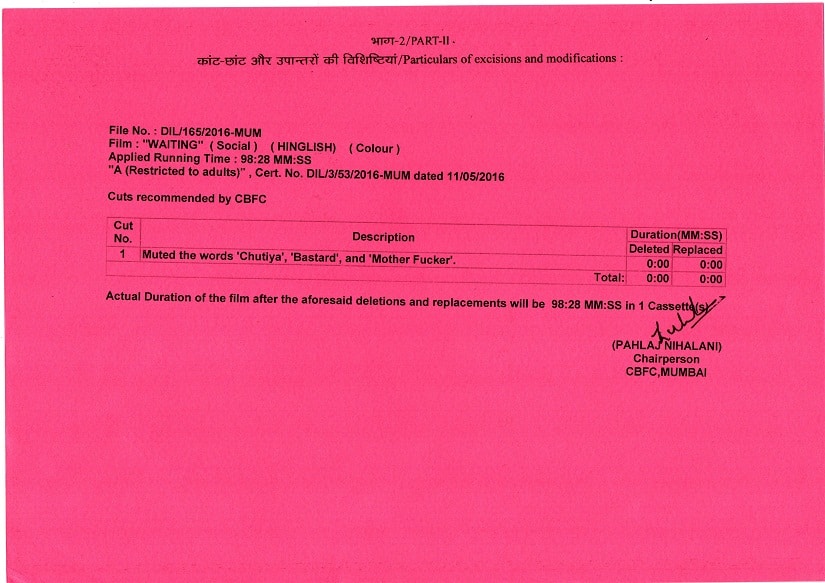 ‘Waiting’ censor certificiate. Image courtesy: Drishyam Films[/caption] Menon and other industry members point to another factor that governs Censor inconsistency: the filmmakers’ own logistical and practical compulsions. Kanu Behl, debutant director of last year’s release Titli, explains: “The Censor Board’s response to a film depends on whether you have the willingness to fight, the resources or the time. Yash Raj and Dibakar (Titli’s co-producers Dibakar Banerjee and Yash Raj Films) are well known in the industry for not pushing for these things with their clout.” Titli – a story about a family of violence-prone, foul-mouthed, amoral carjackers in Delhi – may have been considered worthy of the 2014 Cannes film festival and praised by Indian critics when it came to theatres here 17 months later, but between those two occurrences lay the Himalayan hurdle that is the Censor Board. [caption id=“attachment_2561910” align=“alignnone” width=“825”] 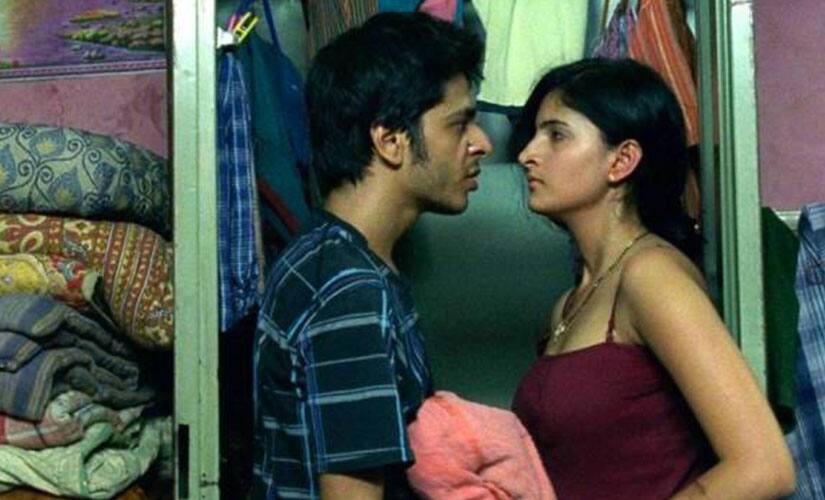 Youtube screen grab from ‘Titli’.[/caption] The film, Behl lets on, was submitted to the Board six weeks before the scheduled release date. The initial examining committee did not clear it, but it was okayed by a revising committee (RC) – the second rung of the Censorship process – with a couple of cuts and an A rating. The director tells us though that ultimately he had to remove – either through muting, ambient sound overlays or other devices – most abuses in the film because Pahlaj Nihalani first kept him and the producers waiting for about two weeks for the certificate and then verbally overruled the RC. Time is one of the most powerful weapons in the hands of a Censor Board chief on a power trip. “If I had a couple more weeks, I would still have fought on,” says Behl. “It’s just that the back and forth took several weeks, and the planned release date was essential for a small film like mine given that just two weeks after me was Prem Ratan Dhan Payo (Sooraj Barjatya’s film starring Salman Khan and Sonam Kapoor). Missing the planned date would have meant another six months’ postponement to get a Friday on which we would not be clashing with a big film.” That the Board is unashamed of its games and unspoken prejudices became most glaringly evident in December 2015 when Pan Nalin’s Hindi-English Angry Indian Goddesses and the Hindi film Hate Story 3 were released on the same day. Nalin’s film – a hard-hitting story of how Indian women stay positive while battling extreme patriarchy on a daily basis – was not just certified A, it had to suffer the ignominy of being a blank-filled experience for viewers since he was asked to mute every single swear word and, weirdly enough, “Indian figure” from a conversation in which a woman tells her friends not to be jealous of her “Indian figure”, “adivasi” when a corporate CEO mentions protests by “adivasis” outside her factory and “sarkar” (government) from a discussion about institutionalised homophobia and government interference in our personal choices in India. In addition, a film that used Hindu goddesses as a metaphor for the intrinsic strength of Indian women was mindlessly made to blur out all visuals of those deities. “When you make a movie by the Censor Board rules, you can make the most vulgar picture and get away with it,” is Nalin’s lament. “There have been a series of films such as Guddu Ki Gun and Grand Masti in which everything is based on sleaze and double meanings, but they don’t see a film like Angry Indian Goddesses in its totality.” Case in point: The same Board in the same week permitted numerous sex scenes and the liberal use of the F-word unmuted in Hate Story 3, while granting it an A certificate. The sex in Hate Story 3 is so poorly simulated and poorly acted that you can rest assured this is not what happens in the country’s bedrooms. That could be a reason why those scenes were cleared along with the swearing, unlike Angry Indian Goddesses that featured language real women of that milieu do use, in dialogues that flowed naturally. [caption id=“attachment_2528478” align=“alignnone” width=“825”] 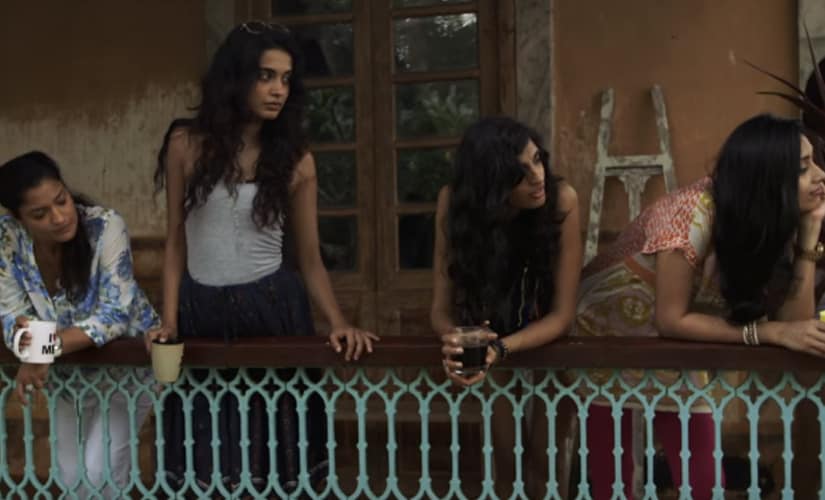 A youtube screen grab from Angry Indian Goddesses.[/caption] Milieu and context, of course, are concepts alien to the Censor Board. So are realism and reality as evidenced by the attitude to Udta Punjab. The film’s makers could perhaps derive some consolation from the Board’s action against Ram Gopal Varma’s Veerappan. The film, released last month, featured a scene in which the notorious real-life sandalwood smuggler mentions that LTTE chief Prabhakaran killed former Prime Minister Rajiv Gandhi. The Censors insisted that instead of a statement of fact, the dialogue should be changed to a speculative sentence about Prabhakaran’s role in Rajiv’s murder. Apparently they feared that Tamil sentiments could be hurt by widely known information about an episode in recent Indian history. The sentiments of rape survivors, on the other hand, are irrelevant of course. What is the big deal when children are allowed to watch as rape is wished on a man and couched in comedy, right Mr Nihalani? (Footnote: This article is based entirely on CBFC’s clashes with Bollywood. The Censor woes of India’s other film industries, especially southern India’s giants, are far worse and merit a separate story. Watch this space.) Related article by Anna M.M. Vetticad: “ It’s tempting to mock Pahlaj Nihalani over ‘The Jungle Book’, but let’s mock the film censorship system instead”
Censor Board, which went ballistic over the drug abuse and politics featured in Udta Punjab has no qualms about clearing Housefull 3’s rape rap.
Advertisement
End of Article


)
)
)
)
)
)
)
)
)



